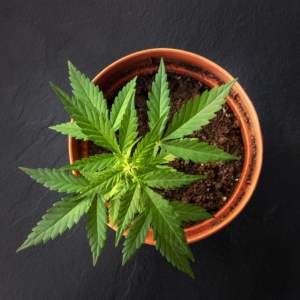In a 6-2 vote this past July, the Colorado Board of Health declined to
add PTSD to the list of conditions for which medical marijuana may be
prescribed. The vote was in direct opposition to both very vocal support
from PTSD patients and the advice of the state’s Chief Medical Officer
himself.
Veterans Call It a Hypocritical Policy
Veterans groups were among the proposal’s biggest supporters. Many
veterans suffering PTSD testified that standard medications such as
antidepressants, antipsychotics, and opioids had destroyed their quality
of life or nearly killed them. A dozen veterans asserted that cannabis
had saved their lives, saying that when they turned to medical marijuana
after years of standard drugs, their need for the more dangerous
conventional drugs disappeared.
Many feel that the decision was an exercise in hypocrisy, considering
the state’s recreational marijuana laws. John Evans, director of Vets 4
Freedoms, said says that veterans–the group with the highest incidence
of PTSD–are being treated as second-class citizens. "We’ve legalized
it," he said. "We’ll take the tax dollars from our tourists (for
recreational marijuana) before we’ll help our vets."
Board Member Says: "I’m Struggling with the Science"
As with past votes, the board’s stated reason for not approving the
measure was lack of scientific studies. As one board member stated, "I’m
still struggling with the science piece [the lack of studies]." However,
the current classification of marijuana as a Schedule 1 drug makes it
nearly impossible to do controlled studies.
It’s a catch 22: Cannabis can’t be declassified due to lack of studies,
but studies are limited by its current classification. Research is a
complicated process with many more steps and restrictions than studies
on other substances or drugs, and it can take years. In the meantime,
advocates say, patients with PTSD suffer depression and other ailments,
leading to increased possibility of opioid addiction and suicide.
A veteran advocate in Colorado said, "It is our brothers and sisters who
are committing suicide every day. We know cannabis can help." Currently,
only about 5 percent of Colorado physicians recommend medical marijuana
to patients, and about 15 doctors make 75 percent of those
recommendations.
Recommendation for Re-Examination Also Struck Down
Dr. Larry Wolk, the state’s Chief Medical Officer and director of the
Colorado Department of Public Health and Environment, agrees that the
science is lacking. He is, however, a proponent of medical marijuana for
PTSD and has recommended the board vote yes. As a compromise, he
proposed a measure that would bring the issue up for re-examination in
four years when two state-funded studies are expected to have results.
The board refused.
The limitation on medical marijuana for PTSD sufferers
in Colorado is just another example of people who could benefit from medical
marijuana not being able to access medication they need. Though recreational marijuana is legal in Colorado, patients with medical needs should be able to access medical marijuana as a medication, not just as a recreational product.






